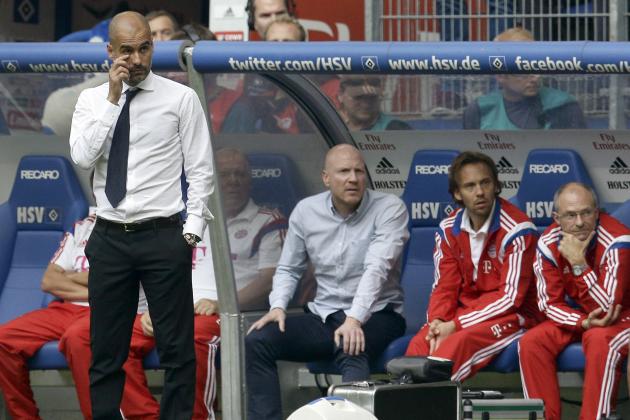Angelo Stiller: A Success Story Masking Deeper Issues At Bayern Munich's Academy

Table of Contents
Angelo Stiller's Meteoric Rise
Early Promise and Development
Angelo Stiller's early career showcased exceptional talent. From a young age, he displayed remarkable technical skills, tactical awareness, and a maturity beyond his years. His journey through the Bayern Munich youth ranks was marked by consistent success:
- Dominant performances in youth leagues: Stiller consistently outperformed his age group, showcasing his ability to dictate play and contribute significantly to his team's success.
- Key roles in youth cup competitions: He played pivotal roles in Bayern's various youth cup victories, often showcasing match-winning performances under pressure.
- Early national team call-ups: His talent quickly caught the eye of national team selectors, leading to early call-ups to various German youth national teams.
- Exceptional ball control and vision: Stiller's technical ability, particularly his close control and passing range, set him apart from his peers.
First-Team Breakthrough and Challenges
Transitioning to the Bayern Munich first team is a significant hurdle for any young player. Stiller faced intense competition for places amongst established stars and experienced professionals. Despite the challenges, he has shown resilience and determination:
- Adapting to the professional level: The demands of professional football, both physically and mentally, are significantly greater than those at youth level. Stiller's adaptation has been a key factor in his progress.
- Learning from experienced players: Playing alongside world-class players provides invaluable learning opportunities for a young talent. Stiller has undoubtedly benefited from this experience.
- Dealing with limited playing time: Competition for places is fierce at Bayern Munich, meaning opportunities for playing time can be limited. Managing expectations and maintaining focus during periods of limited game time is crucial.
- Injury management (if applicable): Any injuries sustained during his development will have tested his resilience and required careful management to ensure a full recovery and return to peak fitness.
The Pressure Cooker: Bayern Munich's Academy Environment
Intense Competition and High Expectations
The Bayern Munich academy is renowned for its high-pressure environment. Young players are constantly evaluated, facing intense competition for limited places in the youth teams and, ultimately, the first team. This creates significant pressure:
- Constant evaluation and performance monitoring: Every training session and match is scrutinized, putting immense pressure on young players to consistently perform at their best.
- Ruthless competition for places: Only the best players survive and progress. This competitive environment can be both motivating and incredibly stressful.
- Early specialization and pressure to excel: Players are often pushed into specialized roles from a young age, creating pressure to master specific skills quickly.
- The weight of expectation: The expectation to succeed at Bayern Munich, a club with a history of producing world-class talent, adds an extra layer of pressure.
Mental Health Considerations
The intense pressure within the Bayern Munich academy environment can have significant consequences for the mental health of young players.
- Burnout: The relentless demand for high performance can lead to burnout, both physically and mentally.
- Anxiety and depression: The high-stakes environment can trigger anxiety and depression in vulnerable young players.
- Lack of adequate support systems: While some support is likely available, the need for comprehensive mental health support tailored to the unique pressures faced by elite young athletes may not be adequately addressed.
- The importance of proactive mental health strategies: A proactive approach to mental health within the academy, including access to psychologists and mental health professionals, is crucial for the well-being of young players.
Systemic Issues at Bayern's Academy?
Player Burnout and Development
While Angelo Stiller's story is one of success, many promising players at Bayern Munich’s academy fail to reach their full potential. Analyzing these cases is crucial to identify potential systemic issues:
- Examples of players who didn't make it: Researching players who showed early promise but didn't progress to the first team or professional level can highlight potential problems within the system.
- Possible reasons for failure: These reasons could include injury, insufficient mental health support, or simply an inability to cope with the immense pressure. A deeper analysis is necessary.
- Comparison to other academies: Comparing Bayern Munich's youth development system with those of other successful clubs could reveal areas for improvement. What best practices are other academies employing?
Balancing Development with Results
The Bayern Munich academy faces the challenge of balancing player development with the need for immediate results at youth levels. This creates inherent conflict:
- Is winning at youth level more important than player well-being? This question requires careful consideration. A win-at-all-costs mentality can be detrimental to long-term player development.
- The long-term vs. short-term goals of the academy: A holistic approach that prioritizes long-term player development, even if it means sacrificing some short-term success, is essential.
- The need for a more holistic approach to player development: This approach should encompass not only technical skills but also mental, emotional, and physical well-being.
Conclusion
Angelo Stiller's success story is undeniably inspiring, but it also highlights potential flaws within the Bayern Munich academy system. The immense pressure and intense competition, if not properly managed, can negatively impact the mental and physical well-being of young players, hindering their long-term development and potentially stunting their careers. The academy’s focus should shift to prioritize holistic player development, encompassing not just technical skills but also mental fortitude and emotional resilience. The system needs to ensure sufficient support for the mental health of young players under pressure.
Call to Action: Understanding the complexities of youth development in elite football is crucial. Further investigation into the pressures faced by young players at academies like Bayern Munich, and the implementation of supportive measures, is essential to ensure the sustainable success and well-being of future generations of football talent. Let's discuss the future of Bayern Munich's youth development and how to improve youth player development while mitigating the risks associated with the intense pressure cooker environment.

Featured Posts
-
 A New Cold War The Rare Earth Minerals Struggle
May 17, 2025
A New Cold War The Rare Earth Minerals Struggle
May 17, 2025 -
 University Of Utah Expands Healthcare Services With West Valley City Hospital
May 17, 2025
University Of Utah Expands Healthcare Services With West Valley City Hospital
May 17, 2025 -
 Anunobys 27 Puntos Guian A Los Knicks A La Victoria Sobre Los Sixers
May 17, 2025
Anunobys 27 Puntos Guian A Los Knicks A La Victoria Sobre Los Sixers
May 17, 2025 -
 Dubai Issues Eid Al Fitr 2025 Travel Advisory Dxb Terminal 3 To See Heavy Traffic
May 17, 2025
Dubai Issues Eid Al Fitr 2025 Travel Advisory Dxb Terminal 3 To See Heavy Traffic
May 17, 2025 -
 Weekly Review Identifying And Learning From Failures
May 17, 2025
Weekly Review Identifying And Learning From Failures
May 17, 2025
Latest Posts
-
 Bof A On Stock Market Valuations A Reason For Investor Confidence
May 18, 2025
Bof A On Stock Market Valuations A Reason For Investor Confidence
May 18, 2025 -
 Should Investors Worry About Elevated Stock Market Valuations Bof As View
May 18, 2025
Should Investors Worry About Elevated Stock Market Valuations Bof As View
May 18, 2025 -
 The Rise Of Indias Economic Independence From Pakistan Turkey And Azerbaijan
May 18, 2025
The Rise Of Indias Economic Independence From Pakistan Turkey And Azerbaijan
May 18, 2025 -
 Trump Responds To Indias Offer To Reduce Us Tariffs
May 18, 2025
Trump Responds To Indias Offer To Reduce Us Tariffs
May 18, 2025 -
 Trump On Indias Tariff Offer No Immediate Action Planned
May 18, 2025
Trump On Indias Tariff Offer No Immediate Action Planned
May 18, 2025
